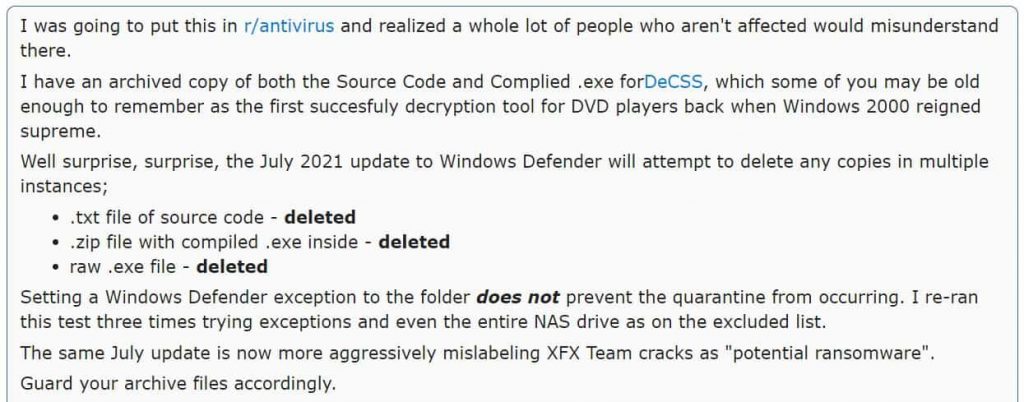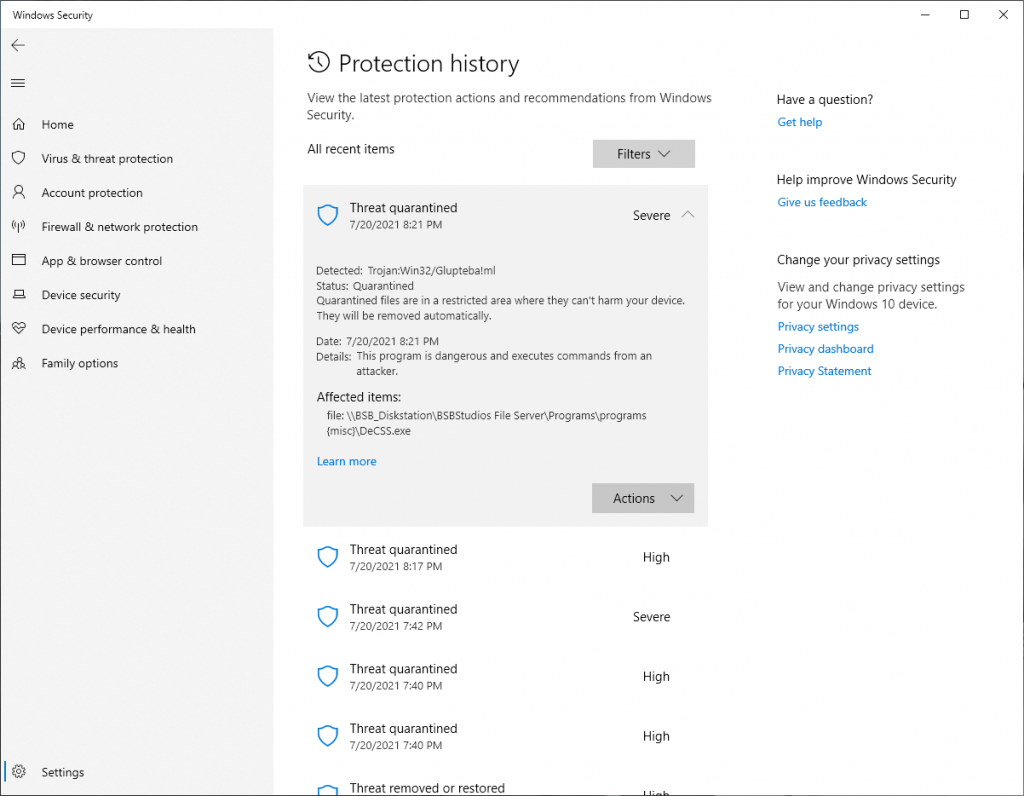Reportedly, the Windows Defender daily update flagged DeCSS DVD encryption software copy as a Trojan and quarantined it before deleting it after 60 seconds interval.
The impact of the Windows Defender update on DeCSS software data has enraged Windows 10 by messing with specific stored files.
For your information, DeCSS is a free computer system that decrypts content on a commercially produced DVD. Before DeCSS was released, open-source OS such as BSD and Linux couldn’t run encrypted video DVDs.
Windows Defender Update Erased Source Code and .EXE Files
The issue with the Windows Defender update, which was reported by a Reddit user Tizaki, is linked to the DeCSS software. Tizaki noted that something was amiss when he checked on his archived copy of Complied .exe, Zip, and Source Code for DeCSS on Win 10 operating system version 21H1, built on 19043.1110.
Perhaps Tizaki didn’t know that the latest Windows Defender tool update that he applied affected his stored data.
What Actually Happened?
Reportedly, the Windows Defender daily update flagged DeCSS DVD encryption software copy as a Trojan and quarantined it before deleting it after 60 seconds interval.

Tizaki noticed that the protection tool picked up the DeCSS software as the Glupteba!m Trojan and marked it as a severe threat.
Moreover, Windows Defender is misdiagnosing XFX Keygen programs from the 2000s as severe threats and labels them as potential ransomware. The problem is probably due to Microsoft’s intense efforts to ensure maximum user security. Its security software seems to be intolerant to old cracked software.

On the other hand, other antivirus software like Kaspersky didn’t find it threatening. But, on VirusTotal, out of 72, 32 engines were misidentified as malicious. Nevertheless, you must create a backup of every old software you intend to use again, as you may never know when the OS deletes it.
Did you enjoy reading this article? Like our page on Facebook and follow us on Twitter.
